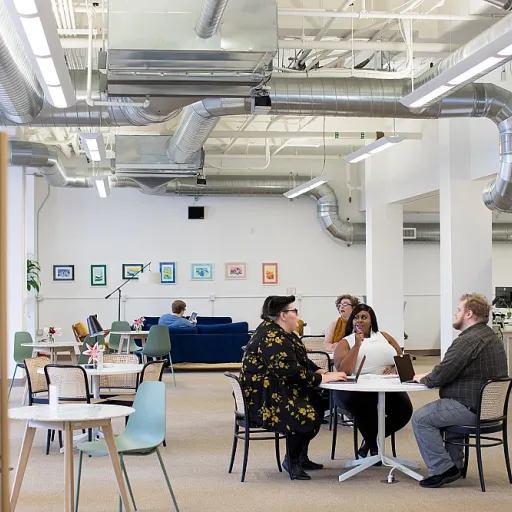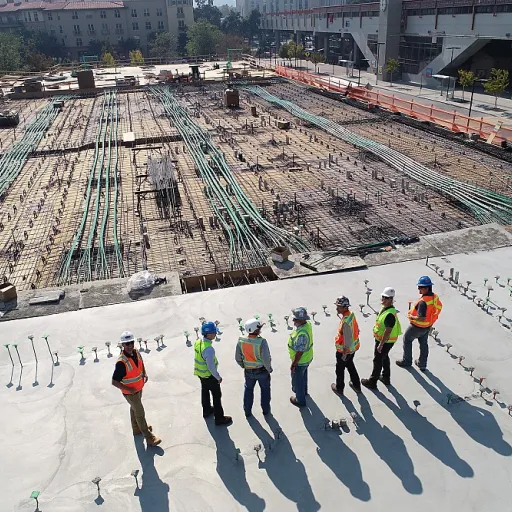
Understanding the New Zealand Business Landscape
Grasping the Dynamics of New Zealand's Business Environment
Understanding the unique business landscape in New Zealand is crucial for project managers aiming for success. The country is known for its open economy, which encourages innovation and entrepreneurship. However, project managers must navigate various enterprise environmental factors that can impact project outcomes.
New Zealand's business environment is shaped by several key elements:
- Regulatory Framework: Familiarity with local policies and procedures is essential. These regulations can influence project timelines and resource allocation.
- Organizational Culture: Companies often emphasize collaboration and flexibility. Understanding these organizational processes can help in building effective teams.
- Technological Adoption: New Zealand businesses are increasingly leveraging management software and digital tools to streamline operations.
Project managers must also be adept at utilizing organizational process assets such as templates and knowledge bases to enhance project efficiency. These resources can provide valuable insights and best practices for managing projects effectively.
For those looking to develop their leadership skills within this context, exploring essential traits for effective leadership in New Zealand companies can offer further guidance.
Key Skills for Effective Project Management
Mastering Essential Capabilities
In the ever-evolving New Zealand business landscape, effective project management hinges on a well-honed skill set. Project managers must juggle myriad responsibilities, from optimizing resource allocation to ensuring project success. To thrive, they must cultivate pivotal competencies.
- Strategic Thinking: Project managers need to align initiatives with organizational goals. Strategic thinking helps in designing streamlined processes and identifying critical organizational process assets.
- Communication and Leadership: Essential for rallying teams and facilitating collaboration, effective communication ensures that all stakeholders are informed of project developments and that feedback is integrated promptly into procedures.
- Adaptability and Problem Solving: Given fluctuating enterprise environmental factors, adaptability is key. Project leaders must manage projects by tackling unexpected challenges swiftly and efficiently.
- Time Management: The alignment of timelines with deliverables is crucial. Managing time effectively enhances resource efficiency and maximizes human resources utilization.
- Knowledge of Tools and Resources: Familiarity with management software and management project tools ensures project managers can leverage resources project and organizational knowledge bases to streamline workflows.
For those seeking to optimize these skills, exploring essential inquiries for interviewing candidates in New Zealand companies can offer valuable insights into desired competencies.
Technological Tools and Resources
Technological Integration for Project Success
In today's rapidly-evolving business landscape in New Zealand, the integration of technology is pivotal for the success of any project management endeavour. Project managers must leverage the latest technological tools and resources to improve efficiency, streamline processes, and enhance overall productivity. To effectively manage projects, project managers should be familiar with a variety of management software. These tools help in monitoring project progress, resource allocation, and maintaining effective communication across teams. Software like Microsoft Project, Trello, and Asana are some examples that offer comprehensive features to track the project's timeline, manage tasks, and collaborate with team members. In addition to management software, utilizing organizational process assets and enterprise environmental factors can significantly bolster project outcomes. These resources include management templates and policies procedures which offer frameworks that guide projects towards desired goals, ensuring consistency and adherence to best practices. Moreover, technological tools also encompass the use of digital communication platforms that facilitate interactions between teams, overcoming physical and geographical barriers. Platforms like Zoom and Slack have revolutionized how teams communicate, ensuring that project-related conversations remain seamless and continuous. For office managers and project managers aiming to achieve greater efficiency, exploring effective strategies for managing retail chain projects in New Zealand can provide valuable insights. This resource is instrumental in understanding how to optimize processes and leverage technology for better project management outcomes. By integrating technological tools into their workflow, project managers can enhance their organizational process, leading to improved asset handling and resource management, ultimately ensuring project success.Building a Strong Team
Fostering a Collaborative Environment
Building a strong team is a cornerstone of project success in New Zealand. Project managers must focus on creating an environment where collaboration thrives. This involves understanding the unique organizational process assets and enterprise environmental factors that influence team dynamics. By leveraging these elements, managers can enhance communication and cooperation among team members.
Effective Resource Allocation
Resource management is crucial in ensuring that projects are completed on time and within budget. Project managers should utilize management software to streamline resource allocation and monitor the availability of both human resources and physical assets. This strategic approach helps in optimizing the use of resources project-wide, ensuring that all team members have what they need to perform their tasks efficiently.
Implementing Best Practices and Procedures
Adopting organizational process assets such as management templates and policies procedures can significantly improve team performance. These resources provide a framework for consistency and efficiency in project management. By integrating these best practices into daily operations, project managers can guide their teams through complex processes with greater ease.
Encouraging Knowledge Sharing
Knowledge bases are invaluable resources for project teams. Encouraging team members to share insights and experiences can lead to innovative solutions and improved problem-solving capabilities. This culture of continuous learning not only enhances individual skills but also strengthens the team as a whole, contributing to the overall success of the organization.
Risk Management and Problem Solving
Identifying and Mitigating Risks
In the dynamic business landscape of New Zealand, project managers must be adept at identifying potential risks early in the project lifecycle. This involves understanding both internal and external factors that could impact project success. Utilizing organizational process assets and enterprise environmental factors can help project managers anticipate challenges and develop effective mitigation strategies.
Implementing Robust Problem-Solving Techniques
Effective problem-solving is crucial for maintaining project momentum. Project managers should leverage management software and knowledge bases to access best practices and proven methodologies. By fostering a culture of open communication within teams, managers can encourage collaborative problem-solving, ensuring that issues are addressed promptly and efficiently.
Utilizing Resources and Assets Efficiently
Resource management is a critical component of risk management. Project managers need to ensure optimal resource allocation to prevent bottlenecks and delays. This involves not only managing physical resources but also human resources, ensuring that team members are utilized effectively according to their skills and expertise.
Developing Comprehensive Policies and Procedures
Establishing clear policies and procedures is essential for managing risks and solving problems effectively. These organizational processes provide a framework for decision-making and ensure consistency across projects. By maintaining comprehensive management templates and process assets, project managers can streamline processes and enhance project success.
Continuous Monitoring and Adaptation
Risk management is an ongoing process that requires continuous monitoring and adaptation. Project managers should regularly review project progress and adjust strategies as needed to address emerging risks. This proactive approach ensures that projects remain on track and aligned with organizational goals.
Continuous Learning and Development
Emphasizing Lifelong Learning in Project Management
In the evolving landscape of project management, continuous learning and development are integral for project managers to remain effective and competitive. Staying updated with industry trends, management methodologies, and technological innovations is crucial for maintaining project success.
Adapting to new challenges often requires project managers to enhance their knowledge bases by actively engaging in training sessions, workshops, and obtaining relevant certifications. These initiatives not only sharpen project management skills but also offer valuable insights into best practices.
Organizational process assets such as historical data, management templates, and policies procedures serve as invaluable resources for guiding decision-making processes and improving performance. By leveraging these resources, project managers can refine their strategies and optimize their approach to managing projects.
The availability of resources such as online courses, webinars, and forums dedicated to project management provides a platform for continuous learning. These resources facilitate the exchange of ideas and innovative solutions among project managers, enhancing problem-solving techniques and risk management strategies across their teams.
Embracing a culture of learning encourages adaptability to enterprise environmental factors and the seamless integration of management software. This ensures that resources, be they human or physical assets, are allocated effectively, contributing significantly to project success in the dynamic New Zealand business landscape.













